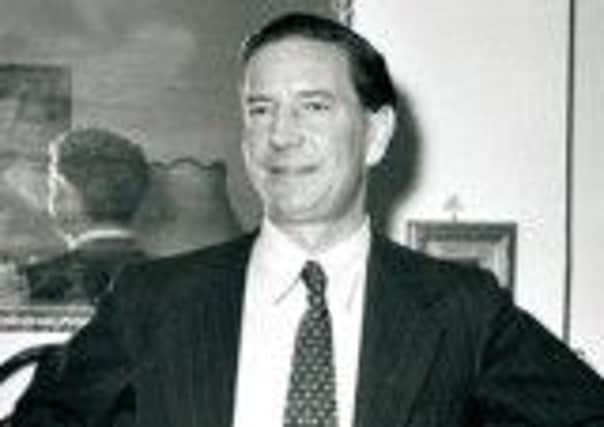Book review: Kim Philby And The Great Betrayal


A Spy Among Friends: Kim Philby And The Great Betrayal
Ben Macintyre
Bloomsbury £20
For a certain type of Englishman it was not enough to be successful, to attend the right school or wear the right club tie, it was necessary to know more than his neighbour. To be in the inner circle was heavenly but the desire to step inside could lead a man to hell, or at least, one of his own making. As Lewis wrote: “Of all the passions, the passion for the Inner Ring is most skilful in making a man who is not yet a very bad man do very bad things.”
The passion for the Inner Ring, to know more than anyone else, led Kim Philby to become a traitor, to betray his country for almost 30 years and leak secrets first to the NKVD and later to its successor, the KGB, which led to the execution of countless men and women who were spying on behalf of MI6 and the CIA.
Advertisement
Hide AdPhilby would argue that he did no such thing, that his desire to assist the USSR was based solely on his commitment to international socialism, but as Ben Macintyre points out in this brilliant book, Philby also believed that, in the end, he escaped, when in fact the British authorities effectively coughed and motioned that the door was open then turned their back.
Rarely do I get angry while reading a book but I did so while reading A Spy Among Friends. Perhaps it was because I had recently finished The Looking Glass War by John le Carré and remembered the sad character of Fred Leiser, a naturalised Pole, seduced back into the secret service and his pitiable forelock-tugging and anxiety to gain the respect of what he viewed as his social “superiors”. It didn’t end well for Leiser when he slipped behind the Iron Curtain, but he wasn’t an Englishman and Philby most certainly was.
The vetting of Philby, a communist at Cambridge, consisted of Colonel Valentine Vivian, deputy head of MI6, lunching with his father who said that he was a “reformed character”. That’s it. Then, when his treachery was finally confirmed, his closest friend in the Secret Intelligence Service, Nicholas Elliott, was sent to confront him, then nudge him on his way to a life of retirement in Moscow.
Swiftly paced, beautifully written, A Spy Among Friends is a history lesson in class, treachery and what a life in a dimly lit room of mirrors will eventually do to a man. It is the small, human details that makes this grim, beguiling story so intoxicating. After the confrontation in Beirut, Elliott and his wife are invited to dine with Philby and his wife, and they do, passing an evening of excruciating small talk. Then Philby, was allowed, as old boys were, to “fade out”.